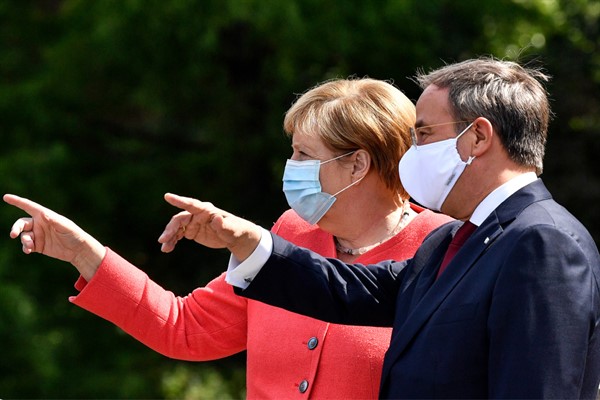BERLIN—German Chancellor Angela Merkel’s preferred successor, Armin Laschet, might have won the leadership of her center-right Christian Democratic Union, or CDU, but he still faces an uphill battle to lead the country’s most powerful political force into a general election in September—the first of the post-Merkel era.
Though it was billed as a tight race, Laschet comfortably won Saturday’s intra-party election to succeed fellow Merkel ally Annegret Kramp-Karrenbauer as leader of the CDU. After a close first round earlier in the day eliminated reformist candidate Norbert Rottgen, Laschet rallied to win a runoff against Friedrich Merz, a right-leaning businessman and erstwhile rival of Merkel. The party’s rejection of Merz for the second time in as many years marks a resounding victory for the chancellor’s political legacy, staving off a lurch to the right on a host of issues from immigration to LGBT rights.
Laschet, the 59-year-old governor of North Rhine-Westphalia, Germany’s most populous state, is a symbol of stability and continuity for the post-Merkel era in both style and substance. He supports most of Merkel’s signature initiatives, including her open-door immigration policy. But it remains unclear whether he has what it takes to become Germany’s next chancellor.

